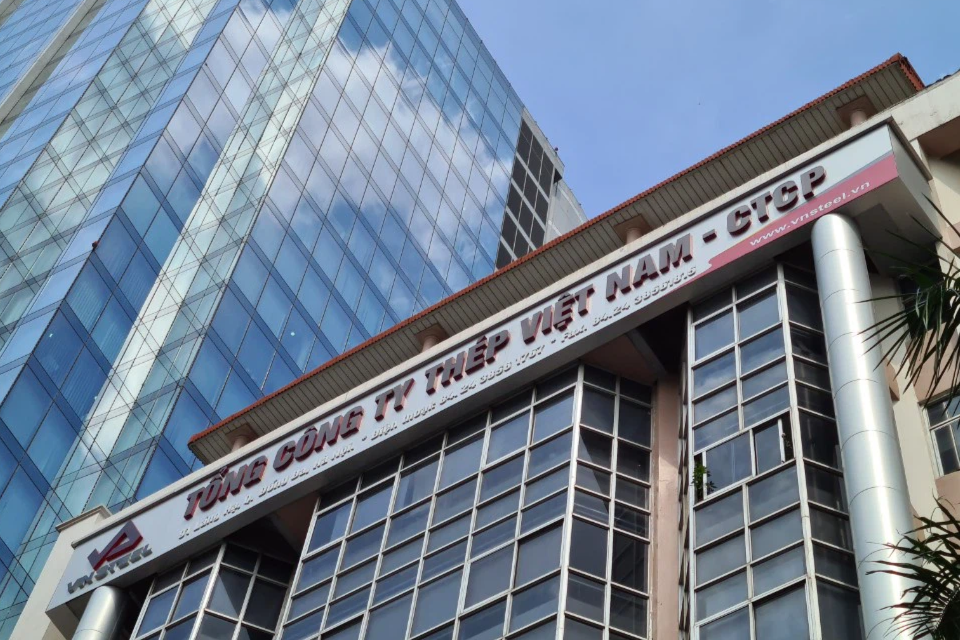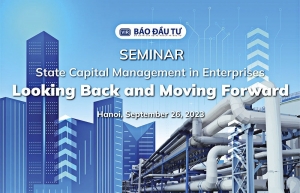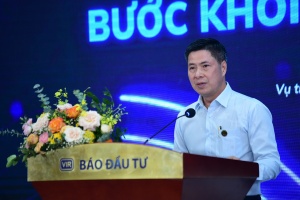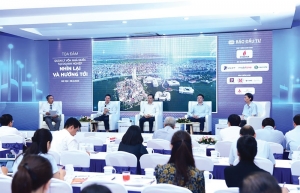Defining SOE priorities vital
 |
| Do Thanh Trung, Deputy Minister of Planning and Investment |
Although SOEs account for a small proportion of the economy, they hold significant resources for the nation’s socioeconomic development, playing a core and vital role in building and safeguarding our homeland in a new context.
The significant growth of SOEs contributes to socioeconomic development and serves as an effective tool for macroeconomic regulation, price stabilisation, social security, national security, and sovereignty, especially in border and island areas.
SOEs are vital in building and developing essential economic infrastructure and leading industries to drive economic growth, especially in a context where the private sector has not yet fully grown and lacks the capability to perform better.
Despite the positive results achieved, the activities of SOEs, especially investment activities, still have some existing limitations.
Firstly, SOEs are slow to adapt to the new era, and their roles in motivating, opening the way for, and promoting other economic components have not been fully realised.
Some have created conditions for other economic components to participate in the production process. However, most SOEs and state economic groups still carry out almost the entire production and business process, forming internal closed production chains.
Secondly, SOEs are in general efficient but not proportionate to the resources they hold, especially considering the nation’s total assets of almost $152 billion. The quality and efficiency of SOEs mainly come from large-scale ones that effectively operate in sectors with natural advantages (such as mining or petroleum) or that dominate the market due to historical reasons (such as telecommunications or financial credit), or that face barriers to entry into natural sectors, but have not been based on a modern technological foundation and innovative capacity.
Thirdly, investment activities have not met expectations. Investment in enhancing innovation and creativity capabilities is still limited, especially in sectors with the potential to lead economic restructuring, such as core technologies, digital technologies, new and clean energy, science and technology, and high innovation.
Fourthly, the competitive capacity of SOEs, especially international competitiveness, is still limited. They only dominate the domestic market and have not yet been able to compete and expand into international markets. In reality, SOEs have not yet had major export products and created high added value, while exports are an important criterion for accurately assessing a company’s competitiveness in the international market.
During a recent government conference with SOEs, the prime minister emphasised the need for unity and consensus in addressing challenges, driving investment for economic growth in 2023 and beyond. He laid out six guiding principles, directions, and many key tasks for the near future, highlighting the importance of implementing these tasks through innovative solutions to boost SOEs’ contributions to achieving goals.
With that, we must focus on defining several fundamental issues. Firstly, we need to recognise and evaluate the position and role of SOEs, thereby clarifying the objectives for restructuring and reforming the sector to align with the actual situation in Vietnam.
These discussions are essential to support the organisation of reviews and comprehensive assessments of the implementation of the resolution on continuing to restructure SOEs for reporting to the Party Central Committee. We will determine where SOEs stand within the Vietnamese business system, which will help define important missions and allocate resources for them to effectively fulfill their roles and positions in the economy.
Next, we need to discuss brand new directions for reforming the methods of state capital management within these enterprises. This should emphasise further delegation and decentralisation of the exercise of rights and responsibilities of state ownership representatives in the new context. Especially, we should explore solutions to enhance the role of the Commission for the Management of State Capital at Enterprises.
Given that the committee manages 19 economic groups and state-owned corporations, it must play the role of a conductor in coordinating and mobilising resources from these enterprises for economic and social development.
Additionally, we need a clearer assessment of the investment activities and investment efficiency of SOEs in the past. This will help identify the obstacles that need to be addressed. We should differentiate between difficulties arising from policy frameworks and those stemming from the implementation process.
Based on this assessment, we can provide recommendations to the government and the prime minister for unlocking resources, creating breakthroughs, and maximising the role of SOEs with the principles of “earliest mean most effective” and “balanced benefits, shared risks”.
Finally, it is crucial to define the priority sectors for investments in the upcoming period and develop large-scale SOEs that can play a pioneering role in the new context. This should be done with the thought that internal strength is fundamental, strategic, long-term, and decisive, while external resources are important and conducive to breakthroughs.
SOEs need to undertake significant, challenging, and innovative endeavours to generate momentum for economic development, thereby allowing room for private enterprises in other sectors. Fields such as offshore wind power, green hydrogen, and the semiconductor industry require the participation of SOEs, especially large-scale ones.
 | Restructuring of Vietnamese SOEs marred by significant asset valuation missteps On July 9, the Vietnamese Government Inspectorate published a report that reveals deep-seated irregularities in the restructuring of state-owned enterprises (SOEs) supervised by the Ministry of Industry and Trade, spanning from 2011 to 2017. |
 | State-owned groups keen on roadmaps for reform Many state-owned enterprises are finding their growth potential curtailed, highlighting the need for regulatory reform and increased collaboration. |
 | VIR and CMSC to co-host forum on state capital management VIR will co-organise a seminar titled 'Looking Back and Moving Forward' with the Commission for the Management of State Capital at Enterprises (CMSC) on September 26. |
 | CMSC navigates reforms and challenges at SOEs Vietnam's Commission for Management of State Capital at Enterprises (CMSC) is driving economic stability and growth, steering 19 major state-owned enterprises with strategic plans. However, the journey is fraught with challenges. |
 | Practical power direction can propel SOE fortunes Experts have agreed that refining the model of state capital agencies is one of the most critical aspects in enhancing the efficiency of state-owned enterprises, transforming them into pioneering forces in the economy. |
What the stars mean:
★ Poor ★ ★ Promising ★★★ Good ★★★★ Very good ★★★★★ Exceptional
Related Contents
Latest News
More News
- Ho Chi Minh City launches plan for innovation and digital transformation (February 25, 2026 | 09:00)
- Vietnam sets ambitious dairy growth targets (February 24, 2026 | 18:00)
- Masan Consumer names new deputy CEO to drive foods and beverages growth (February 23, 2026 | 20:52)
- Myriad risks ahead, but ones Vietnam can confront (February 20, 2026 | 15:02)
- Vietnam making the leap into AI and semiconductors (February 20, 2026 | 09:37)
- Funding must be activated for semiconductor success (February 20, 2026 | 09:20)
- Resilience as new benchmark for smarter infrastructure (February 19, 2026 | 20:35)
- A golden time to shine within ASEAN (February 19, 2026 | 20:22)
- Vietnam’s pivotal year for advancing sustainability (February 19, 2026 | 08:44)
- Strengthening the core role of industry and trade (February 19, 2026 | 08:35)

 Tag:
Tag:




















 Mobile Version
Mobile Version